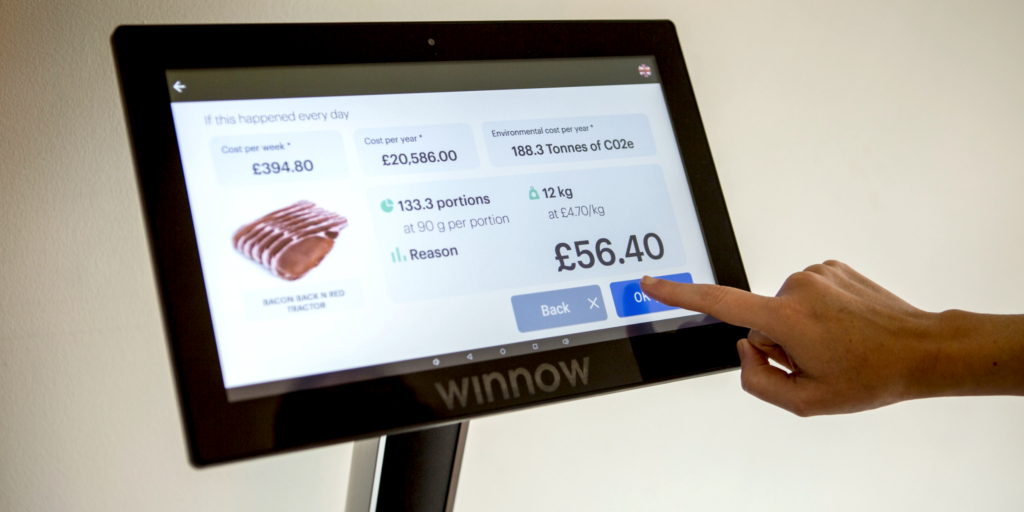
The 3 Reasons Why Hotel Operators Should Take Food Waste Seriously
Hotel operators should take food waste seriously to cut costs, increase their profile as a sustainable brand, and help the environment.
This is a guest post from Winnow, a technology company that helps chefs measure, manage and reduce food waste.
The hotel industry has been looking at resource efficiency for a long time. The focus has been on saving electricity and wasting less water, and projects to tackle these inefficiencies have become widely adopted. It is only recently, however, that operators have been waking up to the opportunities offered by the reduction of food waste.
Food waste is now becoming increasingly prominent on the hospitality agenda. Accor Hotels set a bold target of reducing food waste by 30% by 2020 across all their hotels. The American Hotel & Lodging Association (AHLA) launched a pilot project aimed at preventing food waste within the US hotel sector, and the Pacific Asia Travel Association (PATA) started a regional campaign to reduce food waste. Costa Cruises recently became the first cruise line to make a public food waste reduction target.
Food waste is bad for the environment, but it is also negative from an economic point of view. It costs the hospitality sector more than 100 billion dollars every year. Here are the top three reasons why hotel operators should take food waste seriously.
Cut costs and save money
When looking at the cost of food waste, operators often only consider its disposal cost. This, however, is just a fraction of the total cost to the business. Between them, the cost of the food itself and the labor that went into preparing it contribute nearly 90% of the total cost of food waste.
Hotel kitchens traditionally budget 3-5% of food purchasing costs to be written off as unavoidable food waste. Working with large brands like AccorHotels and IHG, however, we have found that kitchens actually waste between 5% and 15% by value of the food they have purchased. Two-thirds of the avoidable food waste occurs before it gets to the customer’s plate.
Although this may seem like yet another problem to contend with, it is actually a great opportunity to be realized. Employing digital tools to help measure and manage waste can consistently cut food waste in half and thereby significantly reduce your costs.
Increase your profile as a sustainable brand
The hotel sector is becoming increasingly aware of the importance of addressing food waste. The industry has also noted that consumers prefer to be associated with more ethical brands. According to research by Booking.com, more than half of travelers consider eco-friendly practices when choosing a hotel.
Operating your hotel more responsibly and introducing sustainable practices such as recycling waste, conducting energy audits and buying local and seasonal ingredients can help increase your hotel’s popularity among customers. Food waste gives you another option, and an opportunity to get ahead of the pack.
Moreover, by focusing on food waste prevention hotels can lead the way in achieving the UN Sustainable Development Goals. Among other objectives, these seek to halve global food loss by 2030, and becoming a part of this global effort can really help to differentiate your hotel as a sustainable organisation.
Help the environment and reduce your carbon footprint
A third of the food produced for human consumption is lost or wasted before is eaten. The environmental cost of producing all that food for nothing is staggering. It’s carbon footprint is estimated to be around 3.3 billion tonnes of CO2 equivalent. If food waste was a country, it would be the third largest carbon dioxide emitter in the world after China and the USA.
The good news is that by simply reducing food waste, the hotel industry can contribute to the environment by helping to decrease this gap between the amount of food we produce and how much we actually eat. The costs of reducing food waste are low – in fact, you will be saving money – but the potential benefits are significant. Reducing food waste in this context can be seen as a quick win with little risk to the hotel operators and should be prioritised accordingly.
A business opportunity, not a challenge
At Winnow, we create technology that helps chefs measure, manage and reduce food waste. Over the past four years we have partnered with hundreds of kitchens, saving them money and reducing their environmental footprint at the same time.
We would encourage all hotel operators to see food waste as an opportunity to significantly cut costs while also contributing the environment. In a competitive marketplace and with increasingly demanding guests, there has never been a more important time for hotels to run with maximum efficiency.







